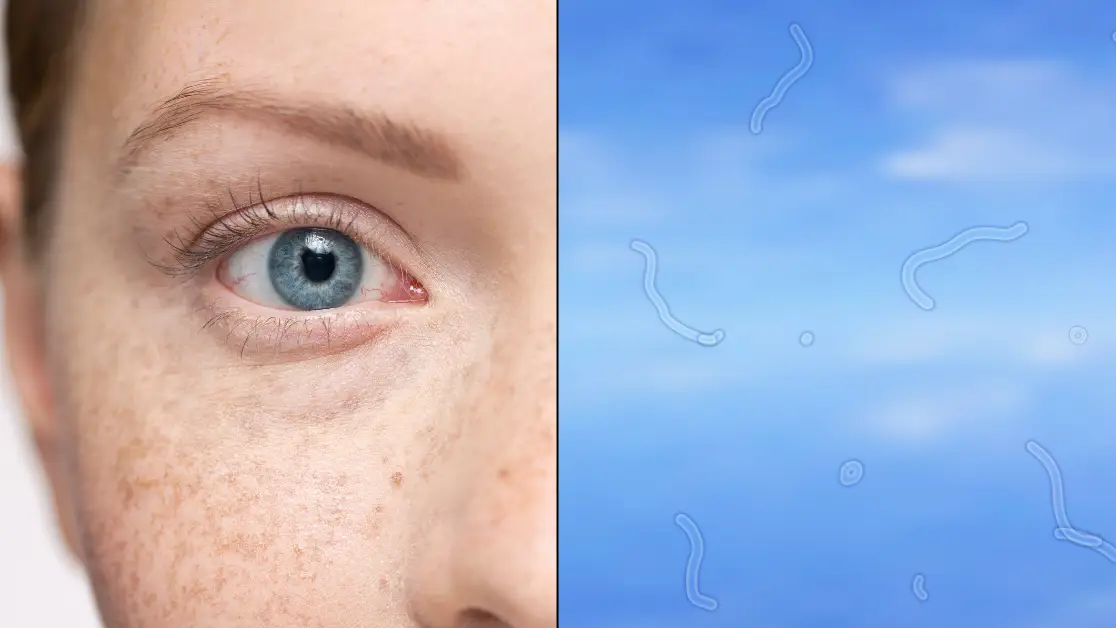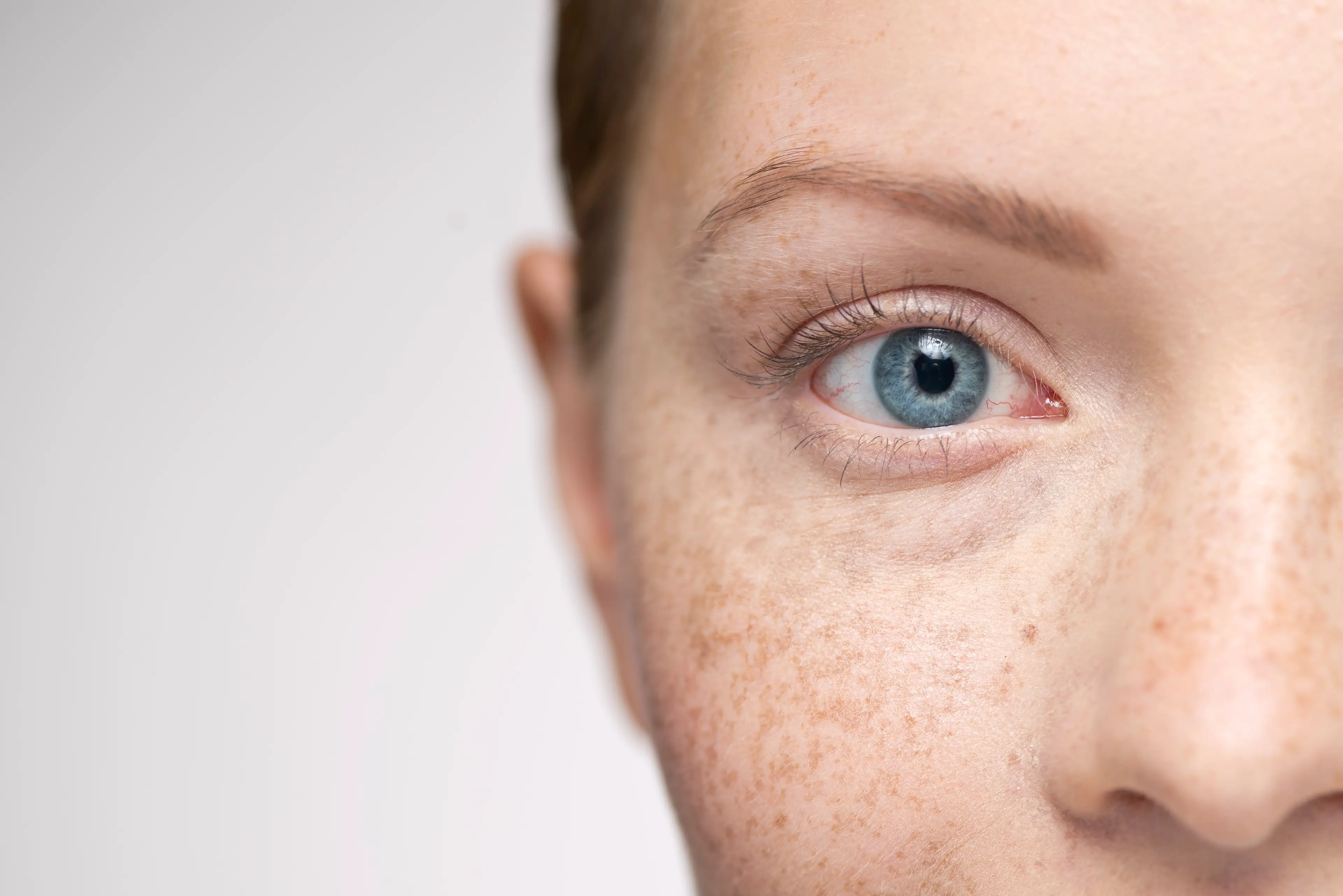
It's a particularly odd phenomenon, but we've all had it where we're looking at something, and some odd squiggly lines float across your eyesight.
But in reality, there's nothing there - these little smudges are called 'floaters', a rare occurrence that the NHS has even provided advice on in the past.
They can be annoying but they are quite common, so it's worth knowing why it might happen, if it's a health concern, or if you should try your best to ignore them when they whizz across your vision.

What exactly are 'floaters'?
According to the NHS, they are caused by a process called posterior vitreous detachment (PVD), a harmless process where the gel in your eyes changes, though this can also be caused by retinal detachment in more serious situations.
Advert
If not treated, it can lead to vision loss, though floaters and 'flashes' can also happen for no real reason.
When to see an expert
You may see them in your eyes from time to time, but the time to see an optician is when new ones show up.
Dr Daniel Polya from Royal Australian and New Zealand College of Ophthalmologists’ highlighted that it's ‘so important to see an optician when a floater first appears’.
The eye expert said that though we can learn to ignore them, we should start paying a bit more attention, adding: “Laser surgery can also be performed to break up big, problematic floaters, but it has risks associated.”
Why do floaters appear in my eyes in the first place?
Dr Polya explained the science behind it to Daily Mail Australia, saying that they are a result of vitreous fibres (which make up about 80 percent of the eye) clogging together.
Speaking to Daily Mail Australia, he said: “It's the condensation of the collagen fibres. Large molecules of collagen clog together and cast shadows on your retina which you perceive as eye floaters.”
It turns out that these clogs then create the shapes of blobs or squiggly lines that pop up when we look at plain walls or lights.

What do floaters really mean?
They can be a huge problem according to the doctor, who explained: “What's really disappointing is when someone will come in with retinal detachment from a posterior vitreous detachment that hasn’t been examined earlier.”
As explained preciously, PVD is a harmless process, but what are the exact chances that it's a cause for concern?
Dr Polya said: “For those that get PVD, there's a five percent chance it's developing a tear in the retina, and if a tear does occur, there's a 50 percent chance of retinal detachment.”
Though laser surgery can treat a retinal tear, it is crucial to catch on to the issue early on to prevent further damage.
“PVD is common and not that disappointing to see, whereas retinal detachment is disappointing to see in a patient who could have had an earlier exam when they first got floaters,” he added.